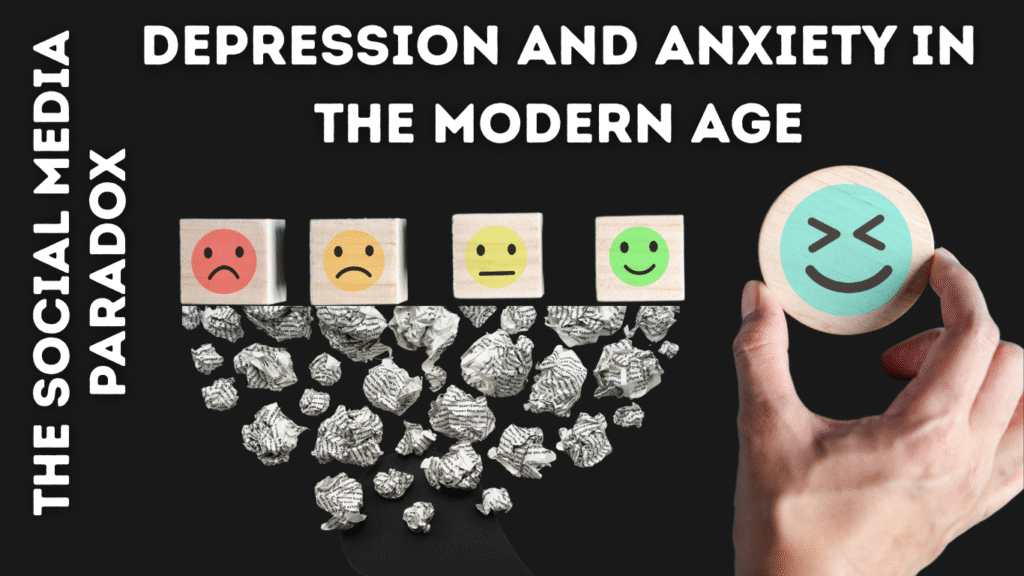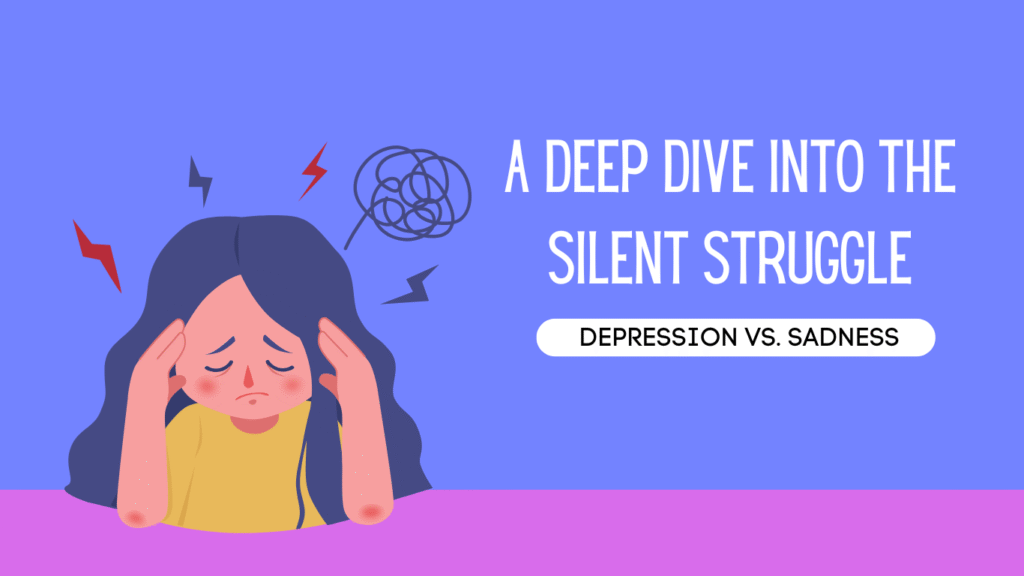Introduction
Have you ever looked around at your life and wondered why you still feel empty? You might have a decent job, people who care, even moments of fun — yet inside, there’s this deep, unsettling void. That, my friend, is emotional emptiness. And if you’re experiencing it, you’re far from alone.
In today’s hyperconnected, overstimulated world, emotional numbness is more common than you think. But just because it’s common doesn’t mean it’s normal or healthy. Let’s break it down and figure out how you can start to feel whole again.
What is Emotional Emptiness?
A Modern Mental Health Crisis
Emotional emptiness is a feeling of inner void — a sensation that something’s missing inside you. Unlike sadness, which often feels heavy, emotional numbness is more like a haunting silence. You know you should be feeling things, but… you don’t.
Emotional Emptiness vs. Depression
While the two often overlap, they’re not the same. Depression can cause emotional numbness, but numbness can exist without full-blown depression. Think of it like this: depression is drowning in emotion, while numbness is being stuck on dry land with no water at all.
How Emotional Emptiness Feels
The “Nothingness” Inside
It’s like being awake in a dream you can’t feel. You’re going through the motions of life, but there’s no emotional reaction. Joy, sorrow, excitement — everything feels muted.
When You Stop Caring
Things that once mattered — relationships, goals, passions — just don’t hit the same anymore. You may still do things, but they feel robotic, forced, or hollow.
Signs You Might Be Emotionally Numb
You Feel Detached from Others
You’re physically present but emotionally distant. Conversations feel surface-level, and even close relationships feel like acting.
You’re Always Tired or Unmotivated
Mental and emotional fatigue often show up as physical exhaustion. You feel drained, but sleep doesn’t fix it.
You Can’t Remember the Last Time You Were Truly Happy
It’s been so long since you felt genuinely joyful or excited that you’re not sure what those emotions even feel like anymore.
You Feel Hollow Even When Life Seems Fine
On paper, everything is okay. But emotionally, you feel… nothing. That contradiction can make the emptiness even more confusing.
Causes of Emotional Emptiness
Trauma and Childhood Neglect
If you grew up without emotional validation or experienced trauma, your brain might have learned to “turn off” emotions as a defense mechanism.
Suppressed Emotions
Burying your feelings — especially painful ones — leads to numbness over time. Emotions don’t disappear; they just get stuck.
Mental Health Conditions
Depression, Post-Traumatic Stress Disorder (PTSD), and Borderline Personality Disorder (BPD) are often linked to emotional numbness.
Burnout and Chronic Stress
Being constantly “on” can wear you down emotionally. If your brain is in survival mode 24/7, it starts turning off feelings to conserve energy.
Loss, Grief, and Major Life Transitions
Losing a loved one, a job, or even a dream can leave you feeling hollow. Unprocessed grief is a big culprit of emotional numbness.
Disconnection in the Digital Age
We’re always connected, yet emotionally distant. Scrolling endlessly can distract you from real emotions, replacing depth with noise.
Why Do We Numb Ourselves?
The Brain’s Way of Protecting You
Emotional numbness is often a defense mechanism. When you’re overwhelmed or hurt, your brain protects you by dulling your emotional responses.
Emotional Avoidance
Some of us choose to stay numb to avoid pain. But unfortunately, when you numb the bad, you numb the good too.
The Hidden Dangers of Staying Numb
Unchecked emotional emptiness can spiral into:
Depression
Substance abuse
Isolation
Risky behavior
Loss of purpose or identity
Living in a state of numbness isn’t living — it’s merely existing.
How to Start Coping and Healing
Acknowledge the Feeling
The first step is to admit you feel this way. Don’t shame yourself — emotional numbness is a response, not a failure.
Name the Cause
Was there a trauma? A loss? A time when you stopped feeling safe? Identifying the root cause helps you begin the healing process.
Journaling and Self-Reflection
Write about your day, your emotions (or lack thereof), and your memories. This helps you reconnect with what’s been suppressed.
Therapy and Professional Support
When to Seek Help
If emotional emptiness is interfering with your daily life, work, or relationships — it’s time to talk to someone.
Types of Therapy That Work for Numbness
Cognitive Behavioral Therapy (CBT)
Trauma-focused Therapy
Dialectical Behavior Therapy (DBT)
Somatic Therapy
A good therapist can guide you through the numbness toward emotional clarity.
Reconnecting With Your Emotions
Mindfulness and Meditation
These practices help you slow down and notice your emotions — even the subtle ones you may have ignored for years.
Rebuilding Self-Compassion
Speak to yourself the way you’d talk to a hurting friend. Be kind. Be patient. You’re not broken — you’re healing.
The Role of Healthy Relationships
Find people who make you feel seen and heard. Emotional connection can’t be forced, but nurturing relationships often reignite emotional awareness.
Reintroducing Joy and Meaning
Do things that once brought you joy — even if they feel flat at first. Your emotions may be dormant, not dead. Give them time to wake up.
Developing a Self-Care Routine
This isn’t about bubble baths (unless you love those). It’s about creating space for emotional restoration. Sleep, nutrition, nature, movement — all matter.
Consistency is Key: Small Steps Matter
You don’t need to overhaul your life overnight. Start small:
5 minutes of journaling
10-minute walk
Saying “yes” to one invitation
Little moments add up and slowly bring feeling back.
Conclusion
Emotional emptiness may feel like a dark, endless tunnel — but it’s not. There is a path out. You don’t have to stay numb. Through understanding, support, and self-compassion, you can reclaim your emotional world. And in doing so, rediscover the vibrant, feeling, whole you.
FAQs
1. Is emotional emptiness a mental disorder?
No, but it’s often a symptom of conditions like depression, anxiety, or PTSD.
2. How long does emotional numbness last?
It varies. With support and healing practices, many people start reconnecting with their emotions within weeks or months.
3. Can I fix emotional emptiness without therapy?
Some people can make progress through self-help, journaling, mindfulness, and connection — but therapy often accelerates healing.
4. What’s the fastest way to feel something again?
There’s no shortcut, but mindfulness, safe connection, and doing activities you used to love can help spark feelings.
5. Why do I feel empty when nothing is wrong?
You might be emotionally disconnected or suppressing something without realizing it. It’s worth exploring with a professional.


